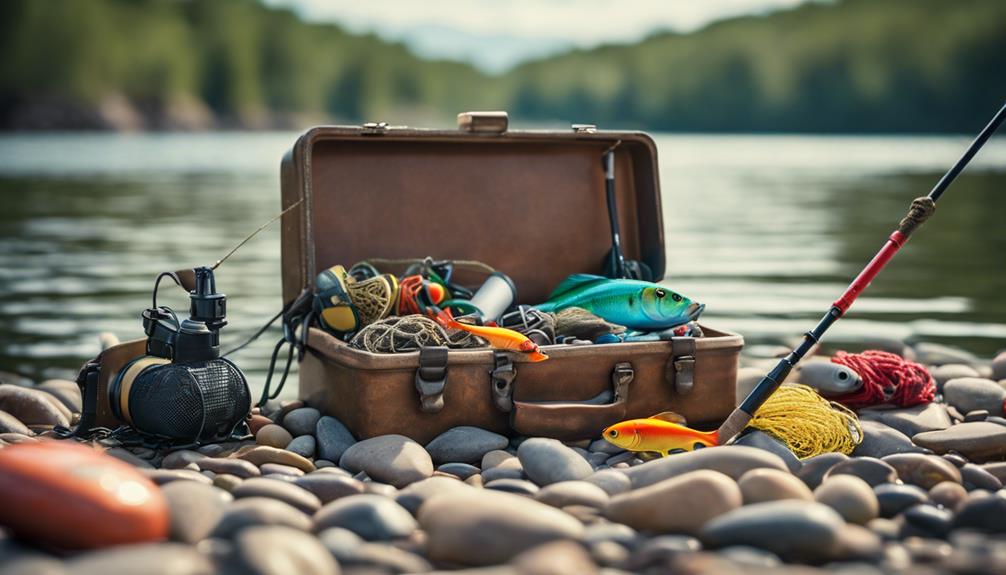Fishing is a beloved pastime for many, but understanding the regulations surrounding fishing licenses can be confusing, especially when it comes to age requirements. In this article, we will explore the question, “What age do you need to have a fishing license?” and provide a comprehensive guide to help you navigate this important aspect of fishing.
Understanding Fishing Licenses: The Basics
Before diving into age requirements, it’s crucial to understand what a fishing license is. A fishing license is a legal document issued by a government authority that allows individuals to fish in designated waters. The purpose of this license is to regulate fishing activities, ensuring that fish populations are sustainable and aquatic ecosystems remain healthy. Fishing licenses often come with rules and regulations, including specific age requirements, which can vary by state or country.
Minimum Age for Fishing Licenses: A General Overview
In general, most states in the U.S. require individuals to obtain a fishing license once they reach a certain age, typically between 16 and 18 years old. However, there are exceptions, and some states allow younger individuals to fish without a license under specific conditions. For instance, many states have a minimum age of 16 for freshwater fishing licenses, while saltwater fishing may allow younger anglers to fish without a license if accompanied by a licensed adult.
Variations by State: Local Regulations Matter
The age at which you need a fishing license can differ significantly from one state to another. For example, in California, individuals must be at least 16 years old to obtain a fishing license, while in Texas, the minimum age is also 17. However, many states offer free or discounted licenses for younger anglers. In Michigan, for instance, those under 17 can fish for free, provided they adhere to the regulations in place. Therefore, it’s essential to check local regulations to determine the specific age requirements for obtaining a fishing license in your area.
Special Considerations for Youth and Family Fishing
Many states recognize the importance of encouraging youth participation in fishing. As a result, several states offer “youth licenses” or “family fishing days,” where children can fish without a license or at a reduced cost. These initiatives aim to introduce young anglers to the joys of fishing while promoting responsible fishing practices. It’s advisable to research local programs that encourage youth fishing, as they may include workshops, events, and free fishing days, making it easier for families to enjoy this activity together.
How to Obtain a Fishing License: Step-by-Step Guide
Once you know the minimum age requirement, the next step is to obtain a fishing license. The process varies by state but generally follows these steps:
1. Check Your Eligibility: Confirm that you meet the age requirements and understand any additional stipulations related to residency.
2. Gather Required Information: Most states will require personal information, including your name, address, date of birth, and sometimes your Social Security number.
3. Choose Your License Type: Decide whether you want a freshwater, saltwater, or combination license. Some states also offer short-term licenses for visitors.
4. Visit the Appropriate Agency: You can usually obtain your fishing license through the state’s wildlife agency, online, or at designated retailers.
5. Pay the Fee: Fishing licenses come with a fee that varies by state, age, and type of license. Some states waive fees for youth or offer discounts.
6. Receive Your License: Once you’ve completed the application process, you’ll receive your fishing license, which may be a physical card or a digital version.
The Importance of Following Regulations
Understanding the age requirements for fishing licenses is just one aspect of responsible angling. Following local fishing regulations, including size limits, catch limits, and seasonal restrictions, is essential for maintaining healthy fish populations. Regulations are in place to ensure that fish species can thrive and that future generations can enjoy the sport. Anglers should always familiarize themselves with the rules that apply to their fishing location and practice ethical fishing habits.
Consequences of Fishing Without a License
Fishing without a license can lead to significant consequences, including hefty fines, confiscation of fishing gear, and even criminal charges in severe cases. Enforcement officers regularly patrol fishing areas to ensure compliance with regulations, and they have the authority to issue citations to individuals fishing without a valid license. Therefore, it’s crucial to understand the age requirements and obtain a fishing license if necessary. The peace of mind that comes with fishing legally far outweighs the risks associated with fishing without a license.
Conclusion: Start Your Fishing Journey Responsibly
In conclusion, understanding “What age do you need to have a fishing license?” is vital for every aspiring angler. While the general age requirement falls between 16 and 18 years old, it’s essential to check the regulations specific to your state. By obtaining a fishing license, you contribute to fisheries management and ensure that this cherished pastime can be enjoyed for generations to come. So gear up, get your fishing license, and enjoy the great outdoors responsibly. Happy fishing!
By following these guidelines and understanding local regulations, you can ensure a smooth and enjoyable fishing experience while also promoting sustainability and conservation in aquatic environments.
